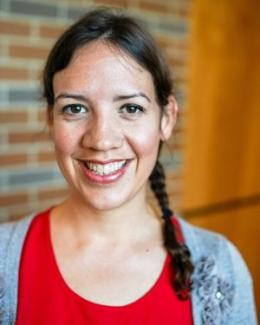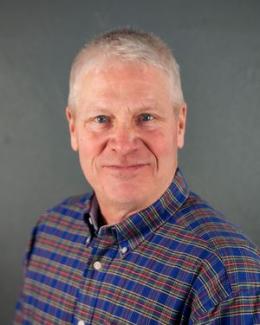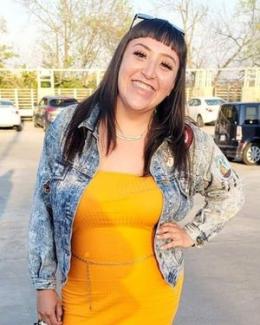Three Faces of Douglas County’s Peer Fellows Program
When Theresa Bird sat down to talk with a fragile-looking, young woman who had just woken up in the LMH Health emergency department, she was reminded of herself. Like other Douglas County peer fellows, Theresa knew what it was like to experience a behavioral health crisis—she too had once found herself in an emergency room, and she knew how scary it could be and how lonely it could feel. But because she’d come through it herself, she also knew there was hope.
Hope is something the Douglas County Peer Fellows Program has in abundance. Started by Douglas County in 2019, the Peer Fellows Program has two goals: it aims to increase peer support for county residents experiencing behavioral health crises, and it aims to expand the pipeline of peer specialists in Douglas County. To accomplish these goals, the Peer Fellows Program trains individuals who have experienced behavioral health challenges to leverage their lived experiences of struggle and survival to help and inspire others. Peer Fellows receive evidence-based training in active listening, mental health first aid, trauma management, and crisis de-escalation, as well as individualized coaching and professional development support from program faculty. Fellows then put these new skills to work by spending 16 hours a week at their assigned host organization for one year. In Douglas County, Peer Fellows have worked at the LMH Health Emergency Department, DCCCA, Heartland RADAC, Aetna Better Health of Kansas, the Lawrence Community Shelter, Woody Park, which served as a temporary campground for individuals experiencing homelessness, Lawrence Public Library, and more. Over time, Peer Fellows build valuable job experience that can transform their own futures while positively impacting the lives of those experiencing behavioral health challenges in the Douglas County community.
The three stories below show the ways in which the Peer Fellows Program, in just three short years, has already made a difference in the lives of Douglas County residents.
Theresa

Theresa Bird started in the Douglas County Peer Fellows Program in 2019. Initially placed at the LMH Health Emergency Department, she quickly learned how valuable peer support specialists could be. Thinking back to her own experiences as a patient in the Emergency Department, Theresa remembers that “some people were really caring, and there were also people who didn’t totally understand how to respond to my distress.”
As a peer fellow, Theresa had the chance to help people like herself. She was glad to be able to support them in a way that she wished she’d had back then. As she explains it, “there is an additional level of trust between folks who have illness experience. Instead of telling you what you should do, as peer fellows, we’re trained to help you figure out how to tap into your own wisdom. […] We want you to feel better, but we’re also not in a position to judge. That alone can really propel someone to start making different decisions or to see things in a different light.”
After six months at LMH Health, Theresa was moved to the Lawrence Public Library, where she helped patrons to talk about things that were bothering them and to connect with community resources that could improve their daily lives. In fact, Theresa was so successful in her position at the Library that when she completed the Fellows program, the Library hired her in a full-time permanent position in Information Services. “I would never have even attempted to apply to the library before the Peer Fellows Program,” she shared. “I did not think it was in my capacity. But I’ve learned that having people in our local workforce with training in active listening is helpful for any organization, not just social services. I’m still using the skills I learned and the connections that I made in Peer Fellows.”
Matt

Like Theresa, Matt Johnson enrolled in? the Peer Fellows Program in 2019. While Matt started his fellowship at the Lawrence Public Library, he quickly found himself more at home working with residents of the Woody Park Campground—“Camp Woody”—which provided temporary shelter for up to 20 individuals with underlying health conditions and was managed by Lawrence Parks and Recreation in partnership with Bert Nash Center’s homeless outreach team.
As Matt explained it at the time, “Camp Woody is for homeless people who have started paperwork to get in the voucher system to get permanent housing. The amount of paperwork that these people have to complete is a lot—about the size of a phone book! I spent most of my time at the camp helping people get their paperwork together. […] The lessons that I learned from the people who I worked with will be with me for the rest of my life.”
One of those lessons was the role that peer support can play in helping people with substance use disorder develop the skills they need to lead a sober lifestyle. Camp Woody had a code of conduct that prohibited residents from using drugs or alcohol. Matt recounted working with a Camp resident who was in his late 60s and who had been homeless for most of his life. “The rules to be sober really stuck with him and he wanted to continue to be sober. I helped him finish his paperwork, get accepted into housing, and encouraged him to keep working on staying sober. This enabled him to get and keep a job, and, eventually, to get a bigger apartment. His sobriety changed his whole life. He was able to host Thanksgiving for the first time with his adult children. I remain friends with this person and am so happy to have been a tiny part of his success.”
Jolie

Another Peer Fellow who drew on her own experiences to help individuals in addiction recovery was Jolie Lippitt. Jolie started the Peer Fellows Program in 2021 and was placed at Heartland Regional Alcohol & Drug Assessment Center (RADAC) as a peer specialist recovery coach. A bridge between the client and the community, recovery coaches help to connect clients to community resources and to overcome barriers to living a sober lifestyle.
Jolie remembers being nervous at first—she didn’t know if she had the educational or the professional experience she needed to do the job well—but the trainings she received through the Peer Fellows Program soon gave her confidence. “My favorite training—if I had to pick one—was Detective Pruett’s training on de-escalation,” she shared. “That was really helpful, not only because it taught me to deal with people in crisis, but also because it taught me self-awareness. It taught me to think to myself, ‘Hey, you need to stop and breathe; this particular situation might be triggering for you.’ I use that in my job daily because I deal with a lot of folks who vary in the level of severity of their mental health challenges, and my ability to sit there with them in whatever they’re walking through and check my own emotions is so important.”
Jolie’s success at Heartland RADAC soon became success for her clients as well. She remembers working with one client who was dealing with crippling anxiety around expressing her identity in public spaces. “It took a long time to build trust,” Jolie recalls. “This client particularly struggled with deciding what to wear. Eventually, I was able to convince her to let me take her shopping. I called myself her personal stylist—she loved it—and the next time that I saw her she looked fabulous and she felt fabulous too. You could tell; she was strutting.”
Today, Jolie is a full-time, permanent employee of Heartland RADAC, and she credits her job to the Peer Fellows Program. “I think it’s really important to emphasize the way that this program makes things possible for somebody like me that would not have been possible otherwise. What gives peer specialists the power to connect with clients is our backgrounds, but simultaneously, our backgrounds can be a barrier for us—we might have criminal histories, spotty employment records, we might be unable to go to school, or have six kids and a small income so we can’t afford additional training. It’s a catch-22. But the Peer Fellows Program helps resolve that. Peer Fellows breaks down barriers for people so that they can go out and break down barriers for other people. That’s what makes it really special.”
The Peer Fellows Program continues to be offered by Douglas County.
